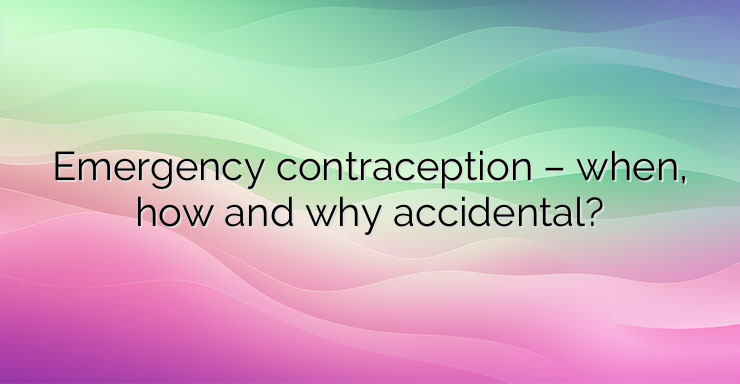Emergency contraception is used after unprotected intercourse or failed contraception. Two hormonal products for emergency contraception are currently available on our market – Levonorgestrel, effective up to 72 hours after unprotected intercourse, and Ulipristal, effective up to 120 hours. For both products, intake should take place as soon as possible. Their action is related to suppression of ovulation, and it is impossible to accurately determine the day of ovulation. Timely intake of the hormone gives greater reliability. Once ovulation occurs, the effect of these products disappears. Ulipristal can suppress or delay ovulation for up to two days, when the risk of pregnancy is greatest. The dosage for both products is one tablet by mouth as soon as possible after unprotected intercourse. It is important to know that emergency contraception does not protect against sexually transmitted diseases! NEWS_MORE_BOX After taking an emergency contraceptive pill, the menstrual cycle may occur a few days earlier or later than expected. If the period is more than seven days late, it is recommended to take a pregnancy test and visit your gynecologist. If vomiting occurs within three hours of taking the tablet, another tablet should be taken. Contraindications. Hormones for emergency contraception are not indicated for use in existing or suspected pregnancy, as well as during breastfeeding. More than one intake per month is also not recommended, due to the risk of hormonal imbalance and changes in the monthly cycle. The use of emergency contraceptives in persons under the age of 16 is not recommended! Drug interactions. Simultaneous intake of Levonorgestrel and Ulipristal with antituberculosis, sedative, antiepileptic, antiviral, antiulcer, St. John’s wort can significantly reduce the effect of hormones. Adverse drug reactions. Emergency contraception products are well tolerated. The most commonly reported complaints are headache, nausea and change in the menstrual cycle.


Leave a Reply